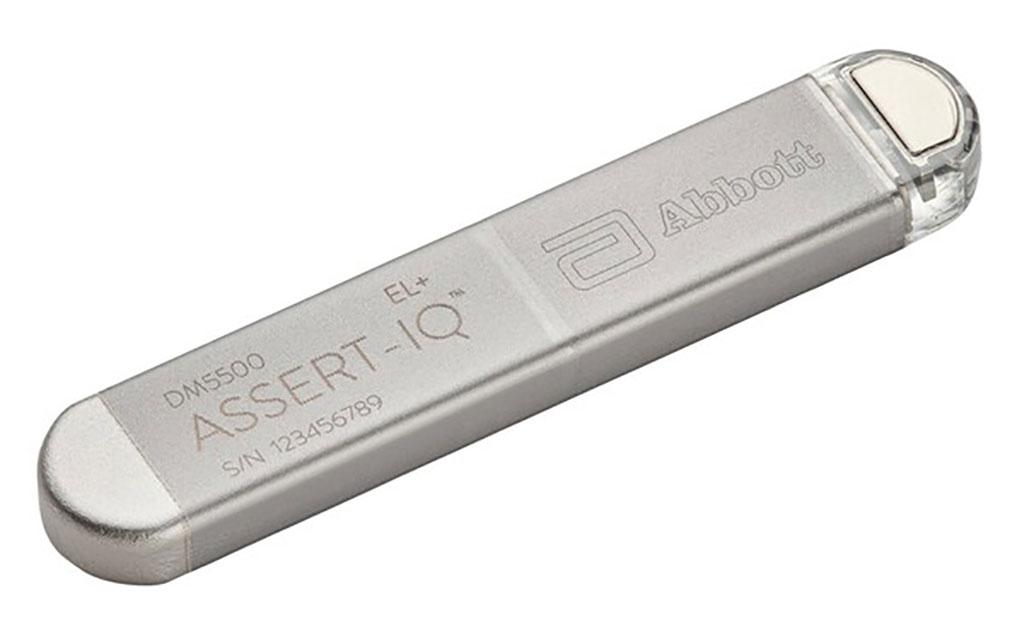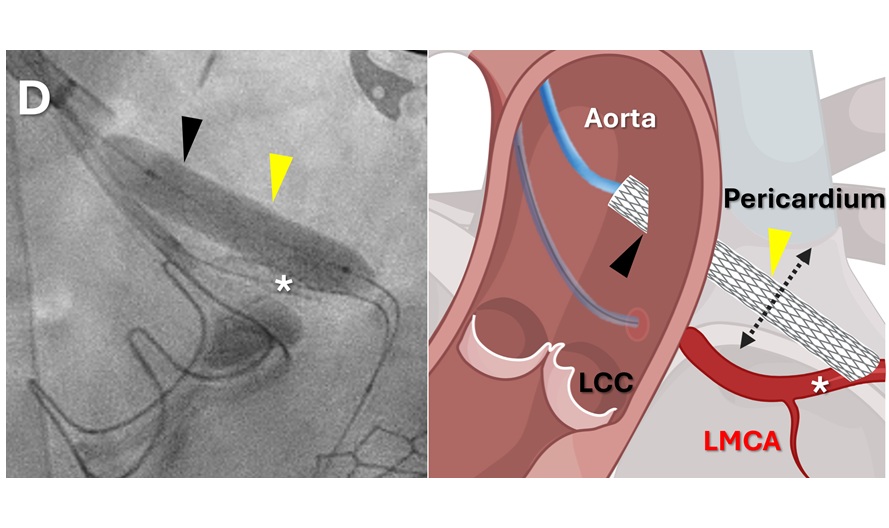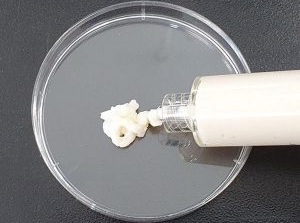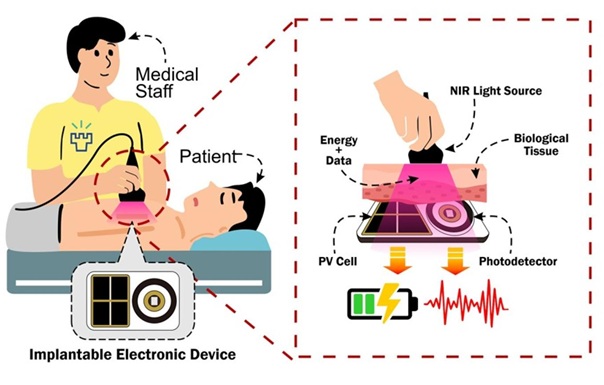Insertable Cardiac Monitor with World's Longest Battery Life to Aid Long-Term Monitoring of Heart Rhythms
|
By HospiMedica International staff writers Posted on 22 May 2023 |

Arrhythmias, or irregular heartbeats, can be very random, complicating diagnoses for many patients. Insertable cardiac monitors (ICMs) – small devices with sensors that are inserted just beneath the chest's skin – aim to facilitate consistent, real-time heart monitoring to detect and identify arrhythmias that can trigger symptoms such as fainting, an irregular pulse, and shortness of breath. Now, an ICM boasting the world’s longest battery life offers long-term monitoring and remote programming to enhance patient connectivity. The device delivers constant monitoring for abnormal heart rhythms and includes features intended to enhance data management and workflow within a physician's practice.
Most commercially available ICMs monitor an individual's heart rhythms for a couple of years, but Assert-IQ from Abbott (Abbott Park, IL, USA) presents two options with a minimum battery life of either three or six years, offering doctors a new level of flexibility in diagnostic monitoring. While the three-year option might be more suitable for traditional monitoring, such as diagnosing fainting, heart palpitations or detections of abnormal heart rhythms, the six-year battery life option allows physicians to monitor patients over an extended period. This longer-term monitoring can be crucial for individuals undergoing therapy, those who have recently undergone a cardiac ablation procedure, or those at risk of developing further arrhythmias like atrial fibrillation. Both options feature advanced algorithms to detect irregular heartbeats and provide clinically actionable data.
With the integration of Bluetooth technology, Abbott's Assert-IQ ICM is designed to stay connected to a transmitter – typically the patient's own cell phone – where it checks heart rhythms every 20 seconds, transmitting results in real-time to the clinic's portal. Furthermore, some Assert-IQ ICM models can be remotely programmed, allowing clinicians to tweak the device's settings, optimize performance, and reduce unnecessary alerts or transmissions – all without necessitating the patient's clinic visit. The Assert-IQ ICM also offers advanced diagnostic capabilities to furnish physicians with more clinically pertinent information about the patient's cardiovascular health, enabling healthcare providers to make faster clinical decisions. Abbott has secured clearance from the U.S. Food and Drug Administration (FDA) for its Assert-IQ ICM, providing physicians with a new alternative for diagnostic evaluation and long-term monitoring of individuals experiencing irregular heartbeats.
"As the incidence of abnormal heart rhythms like atrial fibrillation continue to rise, more doctors are turning to ICM technology to monitor their patients remotely to better detect the cause of symptoms that can impact overall health and quality of life," said Leonard Ganz, M.D., divisional vice president of medical affairs and chief medical officer of Abbott's cardiac rhythm management business. "Until now, insertable cardiac monitors have allowed for remote monitoring of patients but lacked the longevity needed to monitor them long-term. Abbott's Assert-IQ ICM offers physicians a connected health device that will help them provide the best care for their patients while making more accurate and informed treatment decisions."
Related Links:
Abbott
Latest Critical Care News
- Pill Reports from Stomach When It Has Been Swallowed
- Wireless Sensing Technology Enables Touch-Free Diagnostics of Common Lung Diseases
- Early Detection and Targeted Blood Purification Could Prevent Kidney Failure in ICU Patients
- New Cancer Treatment Uses Sound-Responsive Particles to Soften Tumors
- Sprayable Powder-Type Hemostatic Agent Stops Bleeding in One Second
- Ultra-Stable Mucus-Inspired Hydrogel Boosts Gastrointestinal Wound Healing
- AI Model Helps Diagnose Often Undetected Heart Disease from Simple EKG
- E-Tattoos Harvest Energy and Monitor Health in Real Time
- Focused Ultrasound Tricks Tumors into Marking Themselves for Destruction
- World's Smallest Programmable Robot Opens Up New Possibilities in Medicine
- Remote Ventilate View Platform Enables Real-Time Monitoring of Patient-Ventilator Asynchrony
- Soft “Cyborg” Cardiac Patches Improve Stem Cell Heart Repair
- Soft Wearable System Offers Continuous Wireless Monitoring of Neonatal Health
- AI-Enhanced Wearables Could Transform Type 2 Diabetes and Prediabetes Care
- Breathable Electronic Skin Paves Way for Next-Generation Wearable Devices
- AI Transforming Colon Cancer Diagnosis
Channels
Surgical Techniques
view channel
Minimally Invasive Coronary Artery Bypass Method Offers Safer Alternative to Open-Heart Surgery
Coronary artery obstruction is a rare but often fatal complication of heart-valve replacement, particularly in patients with complex anatomy or prior cardiac interventions. In such cases, traditional open-heart... Read more
Injectable Breast ‘Implant’ Offers Alternative to Traditional Surgeries
Breast cancer surgery can require the removal of part or all of the breast, leaving patients with difficult decisions about reconstruction. Current reconstructive options often rely on prosthetic implants... Read morePatient Care
view channel
Revolutionary Automatic IV-Line Flushing Device to Enhance Infusion Care
More than 80% of in-hospital patients receive intravenous (IV) therapy. Every dose of IV medicine delivered in a small volume (<250 mL) infusion bag should be followed by subsequent flushing to ensure... Read more
VR Training Tool Combats Contamination of Portable Medical Equipment
Healthcare-associated infections (HAIs) impact one in every 31 patients, cause nearly 100,000 deaths each year, and cost USD 28.4 billion in direct medical expenses. Notably, up to 75% of these infections... Read more
Portable Biosensor Platform to Reduce Hospital-Acquired Infections
Approximately 4 million patients in the European Union acquire healthcare-associated infections (HAIs) or nosocomial infections each year, with around 37,000 deaths directly resulting from these infections,... Read moreFirst-Of-Its-Kind Portable Germicidal Light Technology Disinfects High-Touch Clinical Surfaces in Seconds
Reducing healthcare-acquired infections (HAIs) remains a pressing issue within global healthcare systems. In the United States alone, 1.7 million patients contract HAIs annually, leading to approximately... Read moreHealth IT
view channel
EMR-Based Tool Predicts Graft Failure After Kidney Transplant
Kidney transplantation offers patients with end-stage kidney disease longer survival and better quality of life than dialysis, yet graft failure remains a major challenge. Although a successful transplant... Read more
Printable Molecule-Selective Nanoparticles Enable Mass Production of Wearable Biosensors
The future of medicine is likely to focus on the personalization of healthcare—understanding exactly what an individual requires and delivering the appropriate combination of nutrients, metabolites, and... Read moreBusiness
view channel
Philips and Masimo Partner to Advance Patient Monitoring Measurement Technologies
Royal Philips (Amsterdam, Netherlands) and Masimo (Irvine, California, USA) have renewed their multi-year strategic collaboration, combining Philips’ expertise in patient monitoring with Masimo’s noninvasive... Read more
B. Braun Acquires Digital Microsurgery Company True Digital Surgery
The high-end microsurgery market in neurosurgery, spine, and ENT is undergoing a significant transformation. Traditional analog microscopes are giving way to digital exoscopes, which provide improved visualization,... Read more
CMEF 2025 to Promote Holistic and High-Quality Development of Medical and Health Industry
The 92nd China International Medical Equipment Fair (CMEF 2025) Autumn Exhibition is scheduled to be held from September 26 to 29 at the China Import and Export Fair Complex (Canton Fair Complex) in Guangzhou.... Read more














